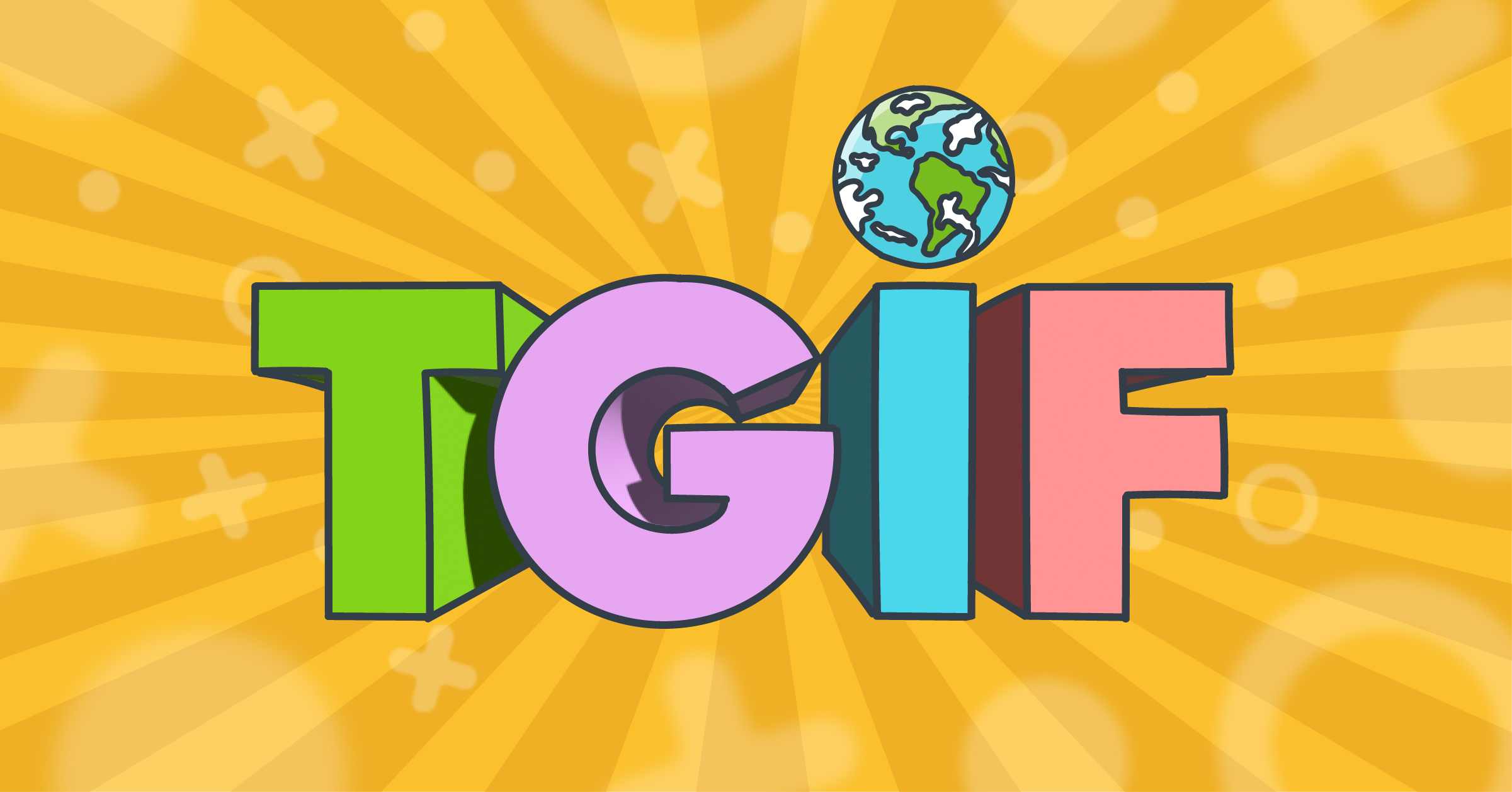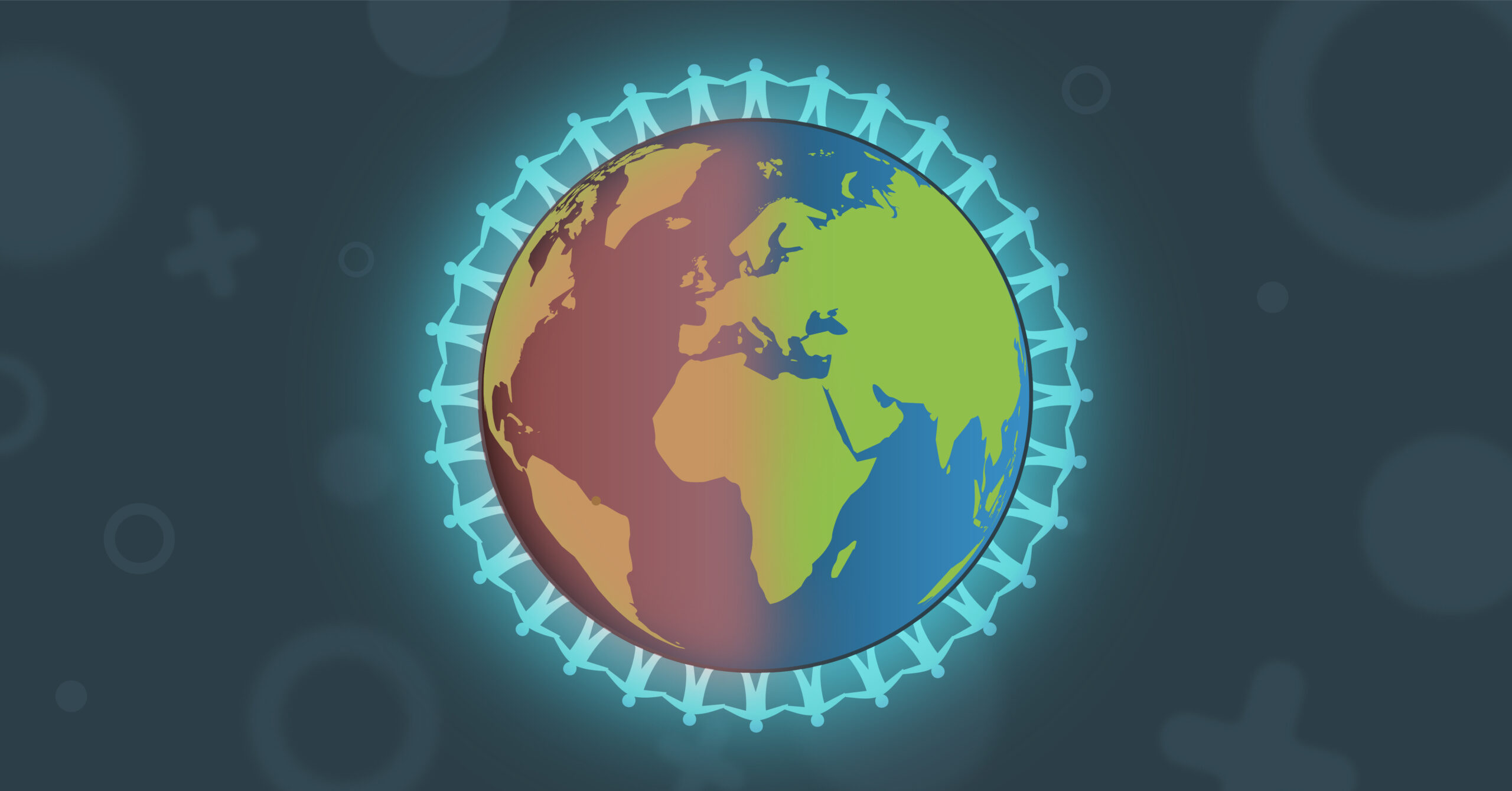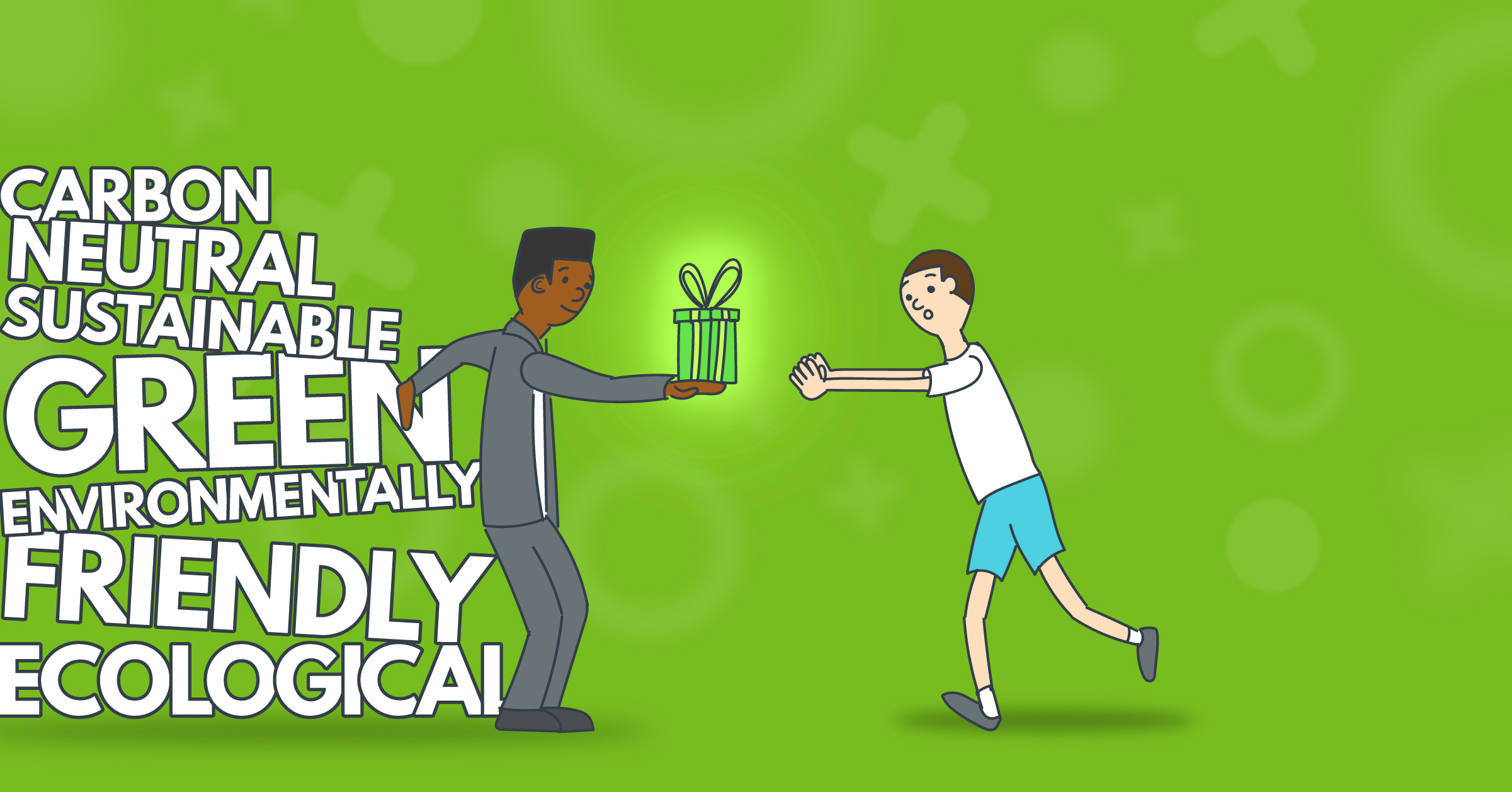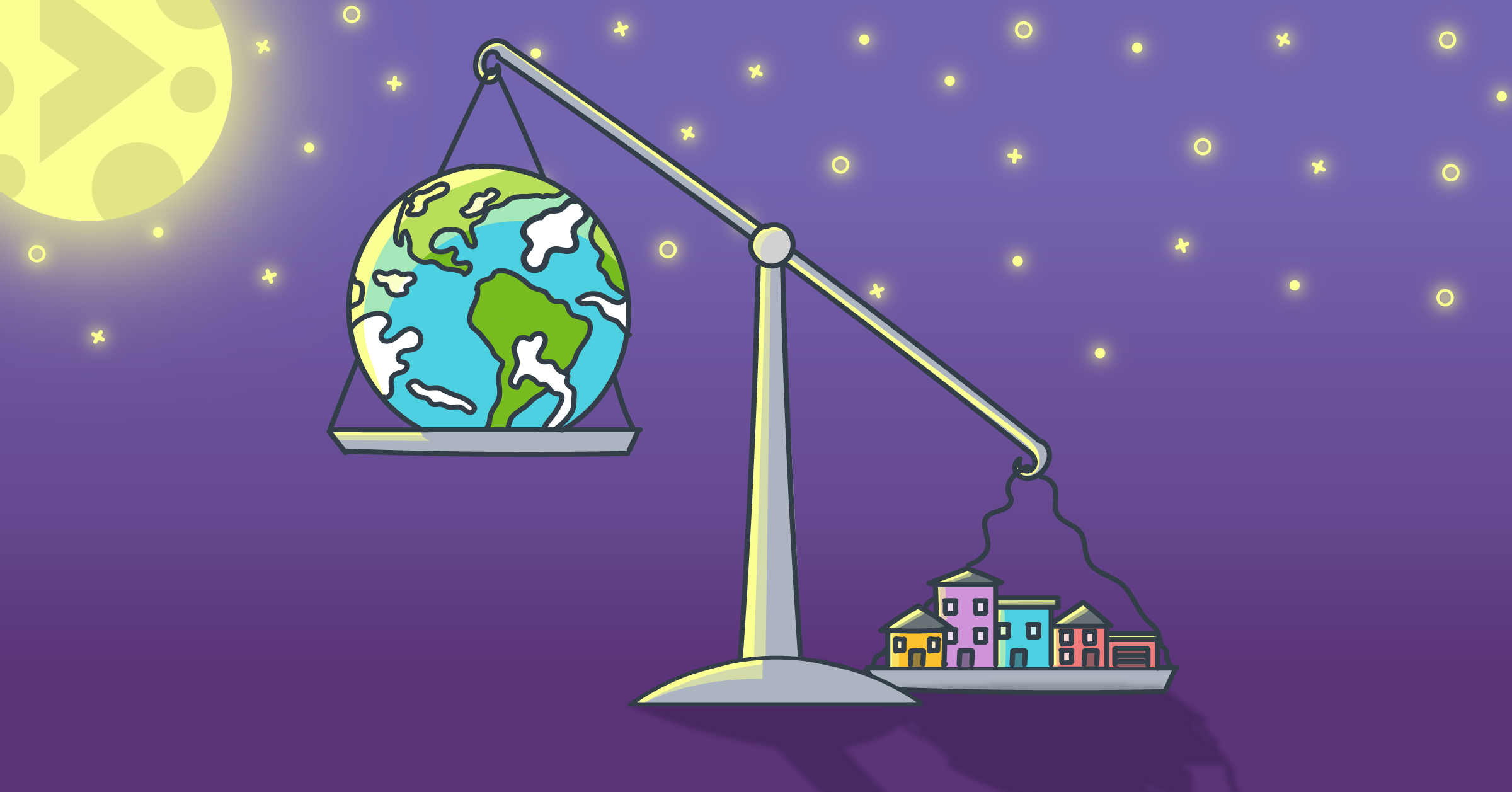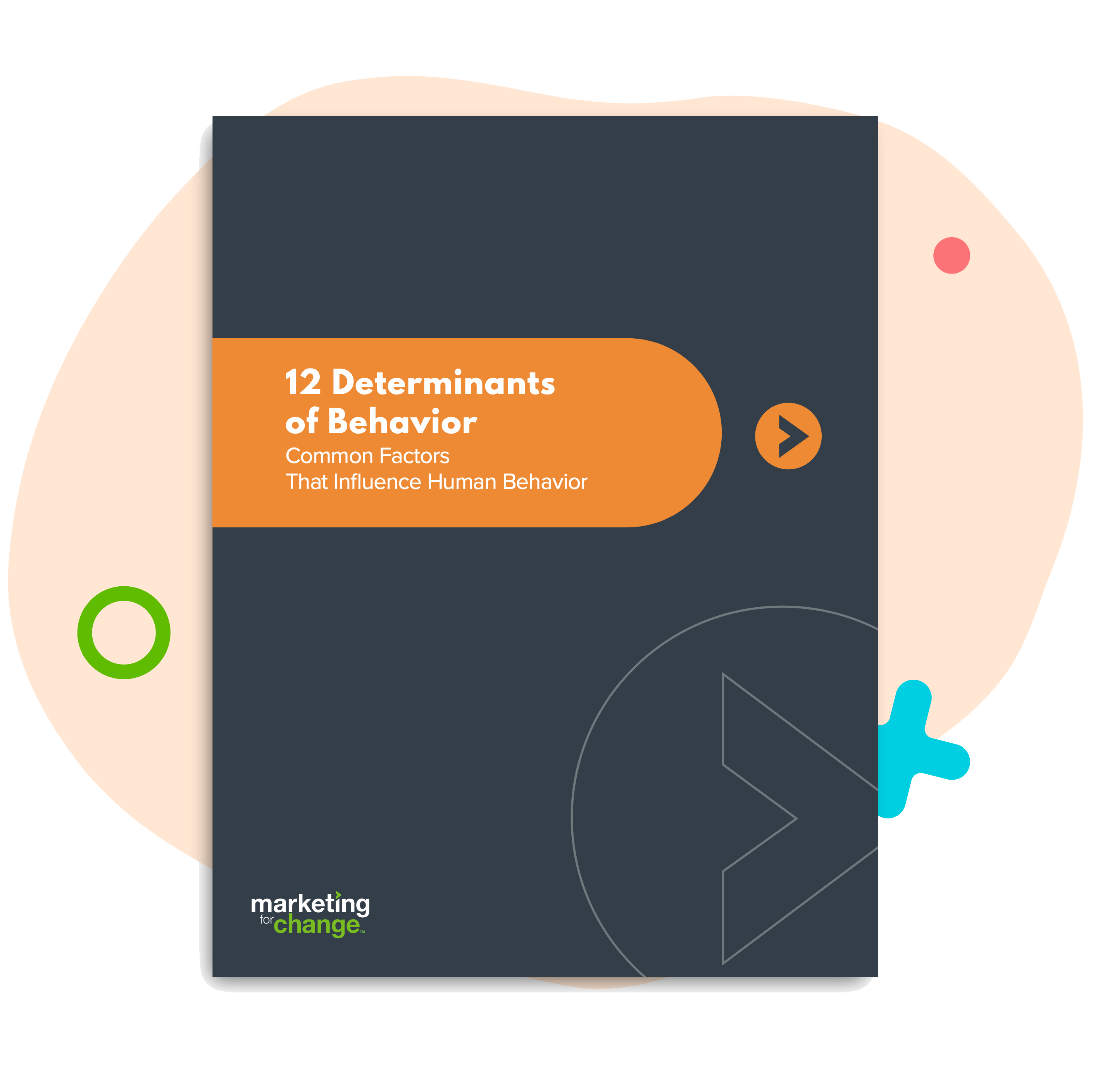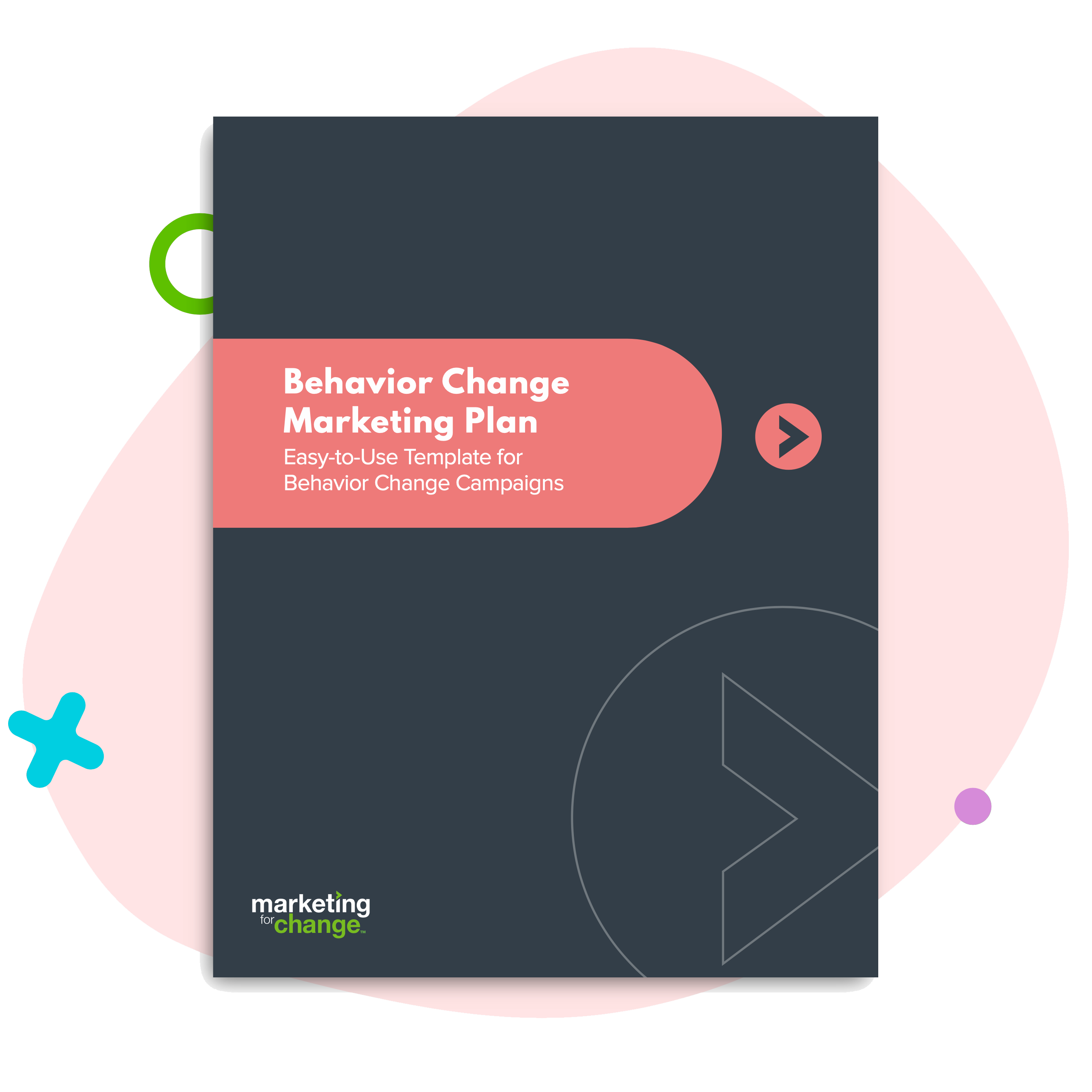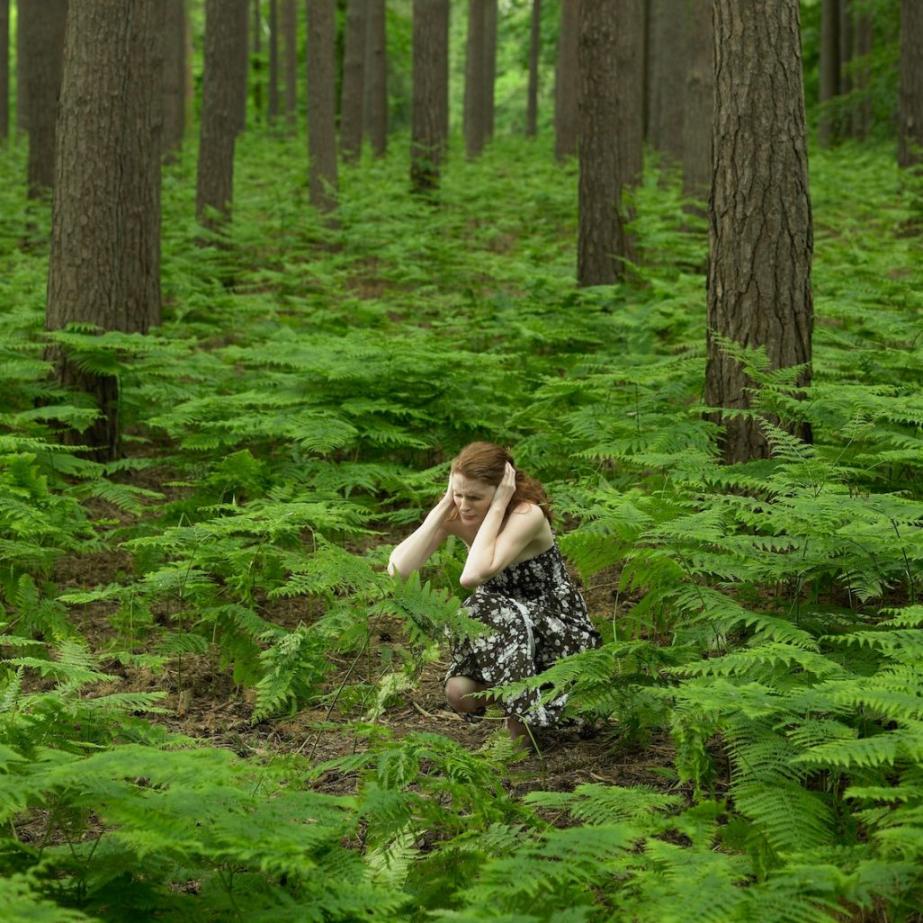
Why Worrying About Climate Change Makes It Worse
The world is going to hell in a hand basket, and Americans are finally worrying about it.
Today, as NOAA’s State of the Climate report documents 2016 as the hottest year on record, the climate communications experts at George Mason University and Yale circulated a report that showed 61% of Americans are worried about climate change, with a record 19% saying they are “very worried.”
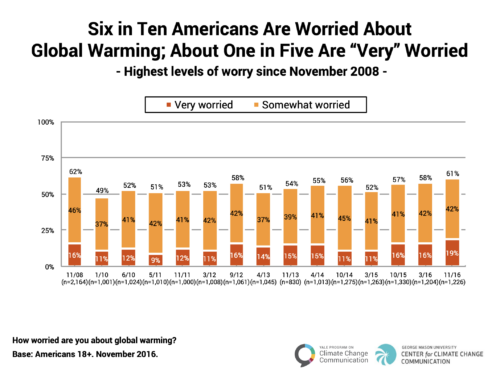
Before all you climate action advocates out there shout “finally” or “I’m with stupid,” there’s a lot to worry about that worry. And I’m not talking about the fact that the report also shows only 15% of Americans understand that 90% of climate scientists are convinced that human-caused global warming is happening.
For too long, environmental advocates (along with public health experts and others who, with the best of intentions, want to keep people from unwittingly setting themselves up for disaster) have adopted what we call a “Chicken Little” approach to motivating behavior change. The theory goes something like this:
The problem with this approach? As far back as the 1950s, social scientists have observed what they call “Chicken Little Syndrome,” which later was defined by pioneering environmental journalist Philip Shabecoff as “a sense of despair or passivity which blocks the audience from actions.”
Too much bad news and folks simply shut down. Even worse, it can make denial a more emotionally appealing alternative. It also can make experts and advocates come off like elitists. It looks something like this:
That’s why here at Marketing for Change, we’re more interested in the other emotions people reported feeling in the Yale / George Mason report.
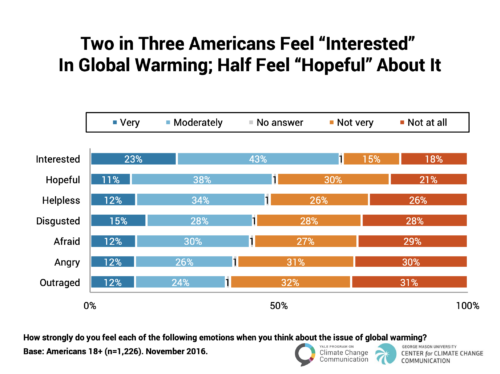
Those top two emotions folks are feeling about climate change right now — interest and hope — give behavior change marketers a lot to work with. Especially since, as we reported in this blog recently, intuitive or emotional thinking drives 95% of human decision making.
Working with hope was exactly what former Maryland governor Martin O’Malley was peddling last week as he gave a keynote speech at the Ready for Anything Sustainability Symposium in Orlando.
“We need a better story,” he told a crowd that ranged from pony-tailed tree huggers to suit-and-tie LEED building experts, noting that despair feeds into the narrative of climate deniers. “As our problems are man and woman created, so too will be our solutions.
“We need to work the problem, people.”
Because don’t forget what happened to Chicken Little in that age-old folk tale: he got eaten by the Fox.

Sara Isaac is Chief Strategist at Marketing for Change.



